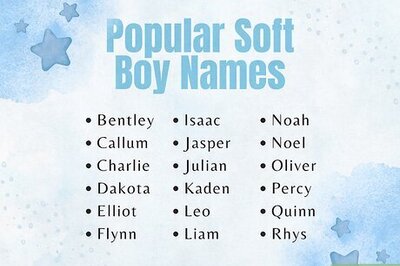
views
Washington: Insomnia is usually defined as subjective complaints of poor sleep accompanied by impairment in daytime function.
It is common in people aged more than 55 years and is associated with reduced quality of life, depression and more physician visits.
Despite a wide range of sleep medication, most people with chronic insomnia remain untreated.
Most of the patients either resort to untested over-the-counter medications or alcohol in attempts to improve their condition.
However, Cognitive behavioural therapy (a form of psychotherapy using imagery, self-instruction, and related techniques to alter distorted attitudes and perceptions) may be more effective than sleep-medication for treating insomnia, a study published in the latest issue of Journal of the American Medical Association (JAMA) finds.
The patients with insomnia who implemented Cognitive behavioural therapy interventions such as relaxation techniques had greater improvement in their sleep than patients who received the sleep medication, according to study.
The researchers found that after their analysis, Cognitive behavioural therapy (CBT) may serve as effective psychological cure for insomnia.
The researchers also say that hypnotics, which is also one of the techniques to cure insomnia, should only be used in extreme insomnia cases.
"The present findings have important implications for the clinical management of chronic primary insomnia in older adults," they say.
"Given the increasing amount of evidence of the lasting clinical effects of CBT and lack of evidence of long-term efficacy of hypnotics, clinicians should consider prescribing hypnotics only for acute insomnia," the researchers add.



















Comments
0 comment